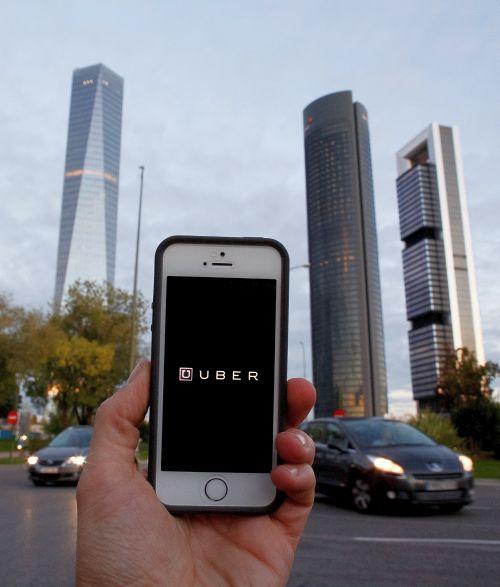Uber was growing under the nose of state agencies - in markets across the globe - without being under a regulated regime. What perhaps turned the tide against Uber was the plight of the consumer, says Somasekhar Sundaresan.

The legal battle over "surge pricing" by Uber and Ola in the Delhi High Court presents the classic regulatory dilemma over the conflict between the illegal and the just.
On the one hand, the very legal basis of providing taxi services on demand by terming the platform as a mere aggregator is suspect.
On the other, the provision of the service is so widely prevalent that a legal dispute has arisen over the terms on which it is provided.
This is an interesting conflict. It can emerge in just about any regulated area of activity.
Depending on how well the dramatis personae present themselves, discourse in any situation will range from endorsing and defending an innovator to attacking a violator.
Take the case of Uber. It is seen as an innovator by many.
It merely provides a software platform to aggregate information about vehicle owners and taxi service consumers.
Yet, it regulates the terms of service, controls the cash flows and works towards ensuring service assurance.
Without owning a single vehicle, it does all that a good taxi service should do.
Such work not being regulated at all, it is completely outside the regulated system - a parallel market between willing buyers and willing sellers of taxi services.
Picture the same situation with a financial service - say, an art fund.
The securities regulator raised eyebrows over 10 years ago and aggregated monies from art lovers to buy and sell art.
After a few hearings, the Securities and Exchange Board of India (Sebi) took no action under its extraordinary sweeping powers to stop the activity.
In other words, under Sebi's nose the activity went on, with a tacit endorsement, particularly since despite notices being issued and hearings conducted, Sebi chose not to interfere with the activity.
Years later, courts have been presented with proceedings calling on judges to decide if such activity constitutes a "collective investment scheme".
What perhaps turns the needle one way or the other is the plight of the consumers.
Uber was growing under the nose of state agencies - in markets across the globe - without being under a regulated regime.
It was truly an innovation and gave consumers an alternative to tardy and unclean services from regulated cabs.
It is when the central bank brought in a security feature for electronic payments that the conflict between innovation and regulatory compliance was first taken note of.
This time, it was the consumers who were inconvenienced by the security meant to protect them, and the security feature was not very popular - even such a tiny measure attracted public defence and comment from none less than the RBI governor himself.
A sexual assault in a vehicle on the Uber platform in New Delhi led to the balance in the conflict swinging the other way.
Suddenly state government after state government started taking note of the platform, and talked about banning unregulated activity.
The innovator was suddenly seen as a violator. Statistics on sexual assaults in licensed taxis in cities - from New York to London to New Delhi - became irrelevant.
Uber indeed held out assurance that its services were safe, but that was a matter of contract.
As regards statutory regulation, it was outside the reach of the State.
A black-and-yellow taxi driver who commits crime may lose his licence, but with Uber there was no licence or permission to lose.
And for the mob, that was enough to tilt the scales from innovation to violation.
Some jurisdictions like Singapore started proposing draft law to regulate Uber.
So did New Delhi, too. But the applications for regulation are reported to have been rejected.
Over time, as memories of good service overwhelmed memory of crime, it was an innovator again.
Overwhelmingly useful, it created a new market and Indian aggregators like Ola, too, are said to be doing as well operationally, if not better financially.
Now cut to the surge pricing issue.
With Delhi implementing the road rationing policy of allowing only odd-numbered and even-numbered private vehicles to ply on alternate dates, the demand for the unregulated aggregation service would obviously rise.
The "surge pricing" - discovery of higher vehicle rental prices with the interplay of higher demand as against smaller supply - model is opaque. Being unregulated, one does not know what metric and algorithm is used for computing the surge pricing.
For the consumer, it is a take-it-or-leave-it proposition.
Suddenly, the craving for regulation comes to the fore and the scales tilt again from innovator to violator.
The Delhi government's affidavit is inexplicable. It is reported to state: "Not only are the app-based companies unlicensed but they are also not allowed to charge more than the prescribed rates of fare in the shape of 'surge price' or 'peak time charge'..."
If an activity that needs licence is being carried out without licence, it becomes illegal.
When Delhi refused to license Uber and Ola it should have thought through what then was the consequence for carrying out unlicensed activity.
It should have taken the plunge to test its stance on whether the activity legally requires licensing at all.
Then, it's the same story over and over again.
When the consumer earns extraordinary assured returns from a mutual fund or a Ponzi scheme or an unregulated trading platform, she enjoys the party and celebrates the "disruptive innovator".
When the law gets declared and the activity is held to be illegal, the consumer not only goes scot-free but also gets protection from the law.
If it is necessarily only the "disruptive innovator" who has to swing to the status of the criminal who "gamed the system", there is no other assured way to kill future innovation.
The author is a partner of JSA, Advocates & Solicitors. Views expressed are his own.













 © 2025
© 2025